A summer trip to London would be exciting for any college student. But for Frost School of Music jazz trombonist Izzi Guzman, it was transformative.
Guzman and seven other Frost School of Music jazz students and new graduates spent a week in late June in London, collaborating with their counterparts at the Royal Academy of Music, playing, performing, and recording the music of British jazz icon Kenny Wheeler at the fabled Abbey Road Studios, home to the Beatles and countless other musical legends.
"I knew from the first few minutes of the Royal Academy of Music jam session that this was going to be a professional and life-changing experience," says Guzman, who received her B.M. in music education from the Frost School in May and will remain to pursue her master's.
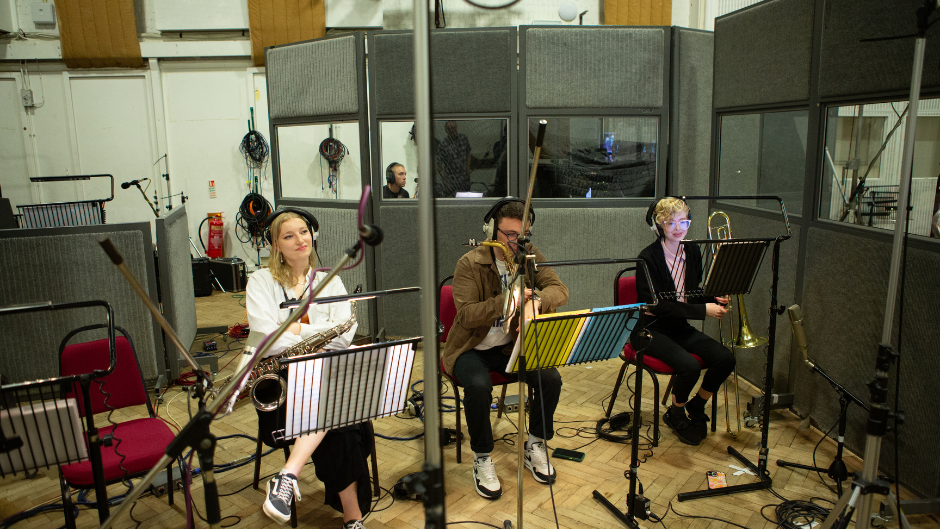
Recording at Abbey Road. (Izzi Guzman is at far right.) Photo courtesy of the Royal Academy of Music.
Life-changing was exactly what Nick Smart, the Academy's Head of Jazz Programmes, and his counterpart at the Frost School, Chair of Studio Music and Jazz John Daversa, hoped for in organizing the project. They were inspired by a shared passion for music education and for Wheeler, a jazz trumpeter and composer who died in 2014.
"The excitement for me came from seeing the students work together," says Daversa. "I think they've formed an unbreakable bond through this project that is so heart-based. There's so much reverence for this music."
Guzman echoed Daversa’s observation. "We were motivated to do well not only for the sake of the music, but for each other," she says.
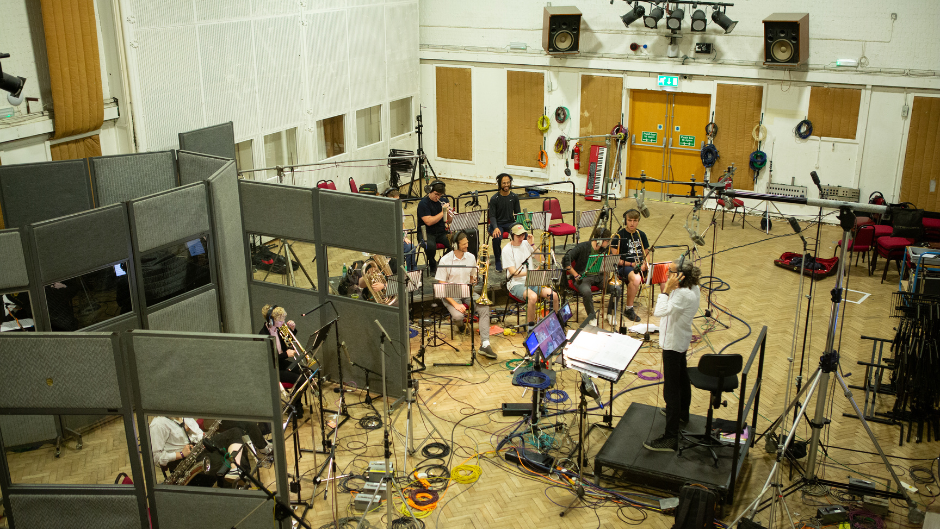
The Frost School and Academy students rehearsed together; performed at the Vortex Jazz Club, a famous venue favored by Wheeler; and spent two days recording at Abbey Road. The album, "Some Days Are Better: The Lost Scores," is made up of never-recorded pieces that were only heard in live performances on the BBC between 1969 and 1974. It will be released in early 2025 on U.S. jazz label Greenleaf Records, by The Kenny Wheeler Legacy featuring the Royal Academy of Music Jazz Orchestra and Frost Jazz Orchestra, at the same time as a biography of the composer co-authored by Smart.
"He was such a brilliant figure," says Smart of Wheeler. The two men were friends, and Smart, who performed with Wheeler, fostered a relationship between Wheeler and the Academy and was instrumental in bringing his archives there. Smart called him "a consummately professional musician… versatile, absolutely lovely to be with… an incredible composer and arranger with a completely individual and recognizable voice, and then an absolute virtuoso, distinctive artist as an improviser. What else is there?"
Smart and Daversa conceived the Wheeler project after Smart visited the Frost School in an exchange program in 2018. However, the pandemic delayed the recording, which was initially scheduled for June 2020. Happily, Abbey Road honored their deposit exactly four years later.
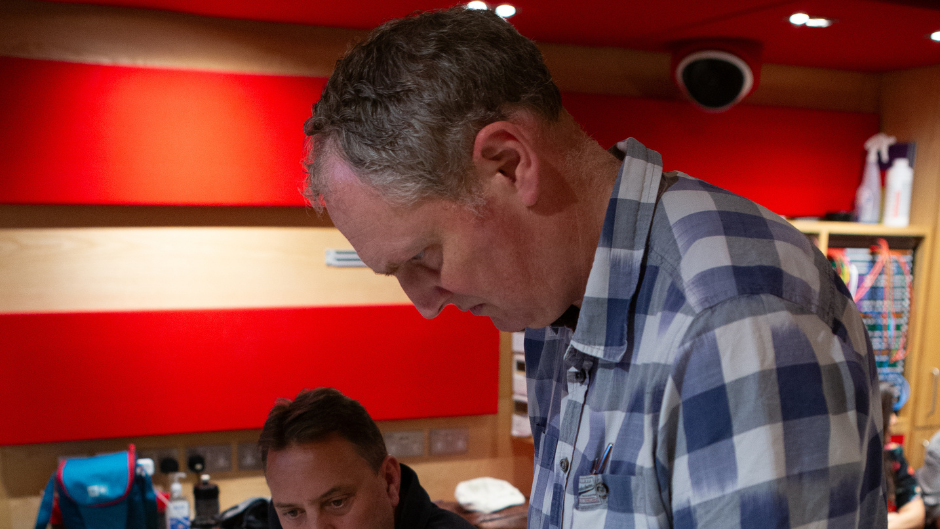
Wheeler was born and raised in Canada but spent his adult life in London. He lived quietly, married to the same woman and living in the same house for decades, and was famously shy and self-deprecating. "I've always warmed to losers," he once told the British newspaper The Guardian. "A lot of jazz musicians have been a mixture of great talent and uncertainty about how to get through life." He could have been talking about himself. Yet he was a superb player, and his compositions were adventurous and complex. He drew inspiration from sources as diverse as Hindemith and folk music, and regularly collaborated with experimental and improvisational groups.
"He was an original voice as a composer and performer," says Daversa. "His music is part of the canon. It is its own tributary of artistry that we need to study and learn from."
In London, the Frost School students were immersed in that musical legacy. Vocalist Norma Winstone and saxophonist Evan Parker, frequent Wheeler collaborators, joined their young counterparts in the recording studio. Wheeler's son and daughter came to the Vortex show, filled with Wheeler fans and musicians of all ages who were avid to hear his music. (They included Frost professor Etienne Charles, who surprised everyone by showing up during a flight layover; and Tommy and Mayumi Adams, who underwrote the London experience for the Frost School group.)
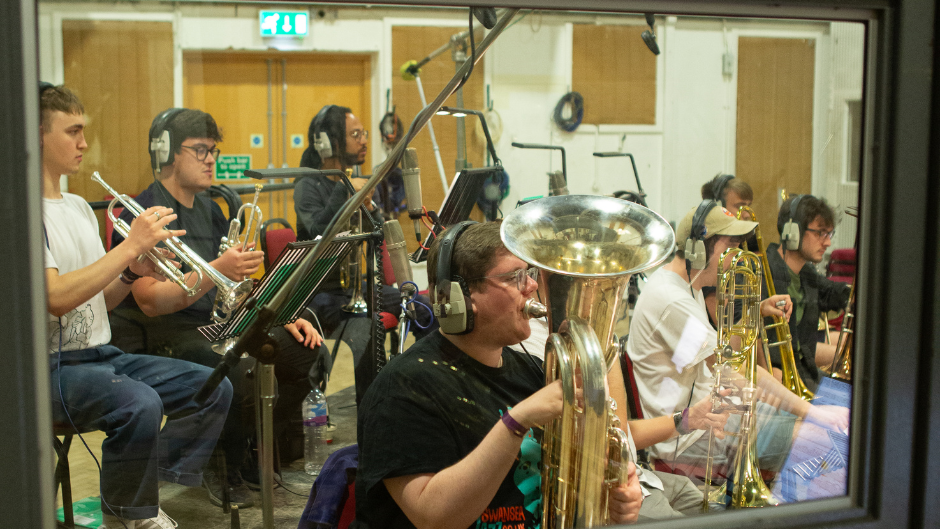
"I could feel the energy of the music like no other performance I've had," says Guzman of the Vortex performance. "I saw the audience smiling and knew they were all deeply connected with the music, which brought us all together."
At Abbey Road, the students soaked in the history of the studio where the Beatles recorded 190 of their 210 songs, transforming pop music and recording technology. Artists ranging from Maria Callas and Fats Waller to Pink Floyd and The Rolling Stones to Radiohead and Nick Cave have recorded there. Wheeler himself made his final album at Abbey Road in December 2013.
"I had a profound sense of awe at the hallowed space I was occupying," says trombonist Kevin Bryson, a 2024 Frost doctoral graduate. "One can't help but think about all the culturally significant music that has been created in that room."
Dean Shelton G. Berg even came to London to play on one of the album's tracks. He expressed enormous pride in the Wheeler project. "The Frost Jazz Orchestra has been a beacon and exemplar in higher education, garnering countless awards for performances and recordings, and traveling to play in prestigious venues worldwide," says Berg. "This legacy continues under the direction of jazz great John Daversa… I couldn't be more proud of this accomplishment by outstanding Frost School students and faculty."
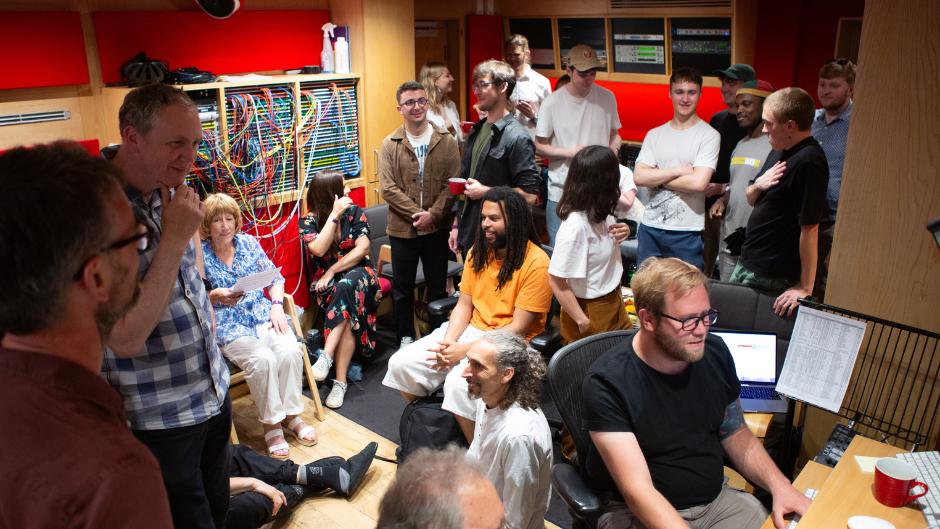
Daversa and Smart said the students' dedication and accomplishment shone in the studio. "They were world-class pros," says Smart. "It's difficult music - conceptually, the stamina, the harmonies. They were absolutely exceptional at all of it, and it was completely moving to see them pull that off."
The students were inspired by the challenge and power of Wheeler's music.
"I felt a keen sense of responsibility to represent the music as best as I could," says Bryson. "There were numerous times the ensemble and soloists were able to reach transcendent peaks and capture magical moments of interaction and intuition. There is no other feeling like capturing that level of playing in the studio."
"Putting out this project isn't just a collection of beautiful music, it's honoring a jazz artist of great humanity and authenticity," says Guzman. "I want to emulate those qualities I felt in Wheeler's music in my own life; we all have something special to share, and a unique voice of our own."

